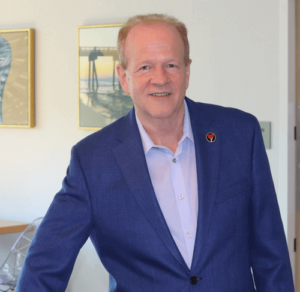When it comes to information, the balance of power has shifted to the caller’s side of the equation over the last decade or so. In the past most had very little information from a brochure, directory, or tourism guide book unless they had visited before. That’s why back then we trained front desk and reservations agents to find out of the caller was familiar with the hotel, and then if not, find out the primary purpose of the trip. Then based on a “business” or “leisure” reason for traveling, agents were trained to offer-up what we would today call a “30 second commercial” or “elevator speech.”
Now with all of the information available online at the hotel’s website and others such as TripAdvisor, Facebook and social media, many of today’s callers have done extensive research prior to calling. What they don’t want to hear is a scripted list of the same basic features they have seen online. That’s why it’s important to find out what it is they do want to hear in order to finalize a decision to book. While it’s still a good idea to determine familiarity and reason for travel, for there’s an important new QUESTion to ask for circa 2014:
“As I’m checking those dates, are there any questions I can answer for you about the area or our amenities and services?”
This QUESTion will help “unmask” the caller’s “story” and prompt them to reveal the question or concern that caused them to call instead of just booking online.
The guest will then let you know if they have read conflicting reviews or negative online postings and need to be reassured. Or they might let you know they are confused about all of the available accommodations and rate options (especially for upscale hotels and destination resorts). Or they might reveal themselves to be a “value-driven deal seeker” who just wants to verify that the rates they see online are in fact the lowest, and/or to make sure they understand the “final” overall cost including taxes and fees.
Be the first to know, sign up here and stay up to date with our latest revenue management news, updates and special offers
Having “unmasked” the caller’s “story” or situation, now agents need a sales model that will help them understand the importance of conveying the value of the overall experience of being a guest. At KTN we call this the Hotel Value Pyramid. There are three levels on the Hotel Value Pyramid. The foundation, which is the location and area; the mid-level, which includes the amenities, services, and outlets in or nearby the hotel, and finally, the accommodation itself to top-off the pyramid.
To get the most calls converted into confirmations, today’s agents need to establish value at all levels before topping off the pyramid with a price tag. Unfortunately, too many reservations agents these days build upside down value pyramids. These are the agents who start off by checking dates and quoting rates. When and only when callers ask about the location, amenities, and services do they offer such details. Their value pyramids easily topple over with the slightest objection.
Instead, if the value of each level is established before rates are quoted, chances are less that an objection will occur and if so, the odds are higher that it can be overcome.
The amount of information you potentially need to provide about each level will vary according not only to the “call story” you are fielding, but also to the type of accommodations and experiences you are selling.
For example, many mid-market hotels do not have restaurants, bars, nor recreational activities to talk about. Instead, such services are located nearby in the area. Other properties, such as full service hotels and luxury resorts, have a multitude of services that could be of interest. Similarly, some hotels have only a few room categories, while resorts and vacation home rental companies have a multitude of options.
So the amount of information you provide at each level of the Hotel Value Pyramid will vary according to what you are selling, and according to who you are selling it to.
Again, if you ask callers if they have questions about the location or amenities and services before quoting rates, most of them will tell you where they are at in their decision making process and thus signaling what components of the value pyramid you need to fill in before you mention a price.
Some call stories are no doubt easier to sell to than others. For example, most regular, repeat guests just want to talk about the rooms and rates. They have stayed before and know about the amenities and services; that’s why they are coming back. They already know about the location and area too. For these callers you need only focus on the top level.
Other callers might be familiar with your area and location, but they have questions about the hotel, resort or community amenities, services, dining options, as well as the room or suite. For these callers you can start from the mid-level and build up from there.
Still other callers have never been to the area before, and in these cases you have to build the Hotel Value Pyramid from the ground-up.
After training your staff on how to identify where callers are at in their decision making process by asking the right QUESTions, they will then know how to determine what guests want to hear. By training them on the concept of the Hotel Value Pyramid, they will be better prepared to go beyond just quoting rates and to instead convey the overall value of the experience of being a guest at your hotel or resort.





